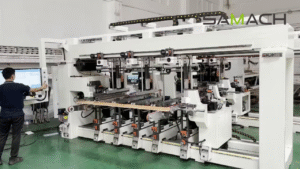Are you looking for a way to step up your oral hygiene game? With the advancements in technology, smart toothbrushes have become increasingly popular in recent years. But are they really worth the hype? In this article, we will take a closer look at smart toothbrushes versus regular toothbrushes to help you decide which one saves you more in the long run.
Benefits of Smart Toothbrushes
Smart toothbrushes are designed to take your oral hygiene routine to the next level. They come with features such as built-in sensors, timers, and Bluetooth connectivity, allowing you to track your brushing habits and improve your technique. Some smart toothbrush even come with personalized coaching to ensure you are brushing for the recommended two minutes.
Another advantage of smart toothbrushes is their ability to provide real-time feedback on your brushing technique. This can help you identify areas where you may be missing during your routine. Additionally, smart toothbrushes often come with multiple brushing modes, such as sensitive or whitening, to cater to your specific dental needs.
Cost Comparison
While smart toothbrushes may come with a higher price tag upfront compared to regular toothbrushes, they may actually save you money in the long run. By improving your brushing technique and oral health, smart toothbrushes can potentially prevent costly dental procedures in the future. This means fewer trips to the dentist for fillings, root canals, and other treatments that can quickly add up.
In contrast, regular toothbrushes may be cheaper initially, but they lack the advanced features of smart toothbrushes. This could result in less effective brushing, leading to plaque buildup, cavities, and other dental issues that may require expensive treatments down the line.
Environmental Impact
In addition to cost considerations, it’s essential to consider the environmental impact of your toothbrush choice. Smart toothbrushes often come with rechargeable batteries, reducing the need for disposable batteries that can end up in landfills. This can help reduce your carbon footprint and contribute to a more sustainable lifestyle.
On the other hand, regular toothbrushes are typically made from plastic materials that are not biodegradable. This means they can linger in the environment for hundreds of years, contributing to pollution and harming marine life. By opting for a smart toothbrush with rechargeable capabilities, you can make a more environmentally friendly choice for your oral hygiene routine.
Conclusion
In conclusion, when considering the long-term benefits, smart toothbrushes may ultimately save you more money and offer a more sustainable option compared to regular toothbrushes. With advanced features and real-time feedback, smart toothbrushes can help improve your brushing technique, prevent costly dental procedures, and reduce your environmental impact.





